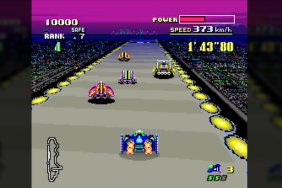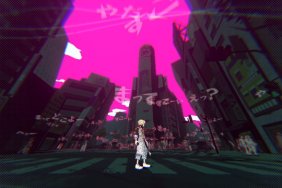The ghost with the most.
Ghost Recon sure has changed. It used to really fit its name – chances are you’d heard of the original, but never actually seen it. And that was a good thing, because it was uglier than an exit wound. Still, it was a deep, challenging tactical shooter and gamers willing to look past its visuals were pleased with what they found beneath the surface.
So it came as some surprise several months ago when the most compelling evidence for the Xbox 360’s graphical capabilities were delivered in the form of gameplay footage for Ghost Recon: Advanced Warfighter (or G.R.A.W.for the syllabically challenged). We were pleased to see that Ubisoft had given its rugged series such an extreme makeover, but worried that they might have left the series’ gritty sense of realism and difficulty on the operating room floor.
[image1]
The only things misplaced, it turns out, were our fears. G.R.A.W. combines a wonderfully deep, intuitive control scheme with dazzling graphics and a ton of playable content. Not only is this very much a Ghost Recon game, it’s the best one, though this war hero isn’t without its battle scars. Bad A.I. and dumbed-down squad commands keep the single-player campaign from being all that it can be.
The first thing you’ll notice when you lock and load is the smart new heads-up display. A keen picture-in-picture window let’s you see what your allies see, effectively giving you the ability to monitor two parts of the battlefield at once. On top of that, your allies’ positions are always marked in your field of vision as blue diamonds that grow or shrink depending on their proximity, while enemies that have been spotted by you or a member of your team are indicated by red diamonds.
This might sound like too much information, but this is a game based on reconnaissance, after all. Life and death in G.R.A.W. is entirely a matter of knowing your enemy’s location while concealing your own. This isn’t like other shooters where you and your foes circle-strafe each other while absorbing buckets of bullets. In G.R.A.W., if you’re seen, you’ll get shot, and if you get shot, you’ll probably die.
With such an emphasis on vision, it comes as little surprise that the game features a cornucopia of view modes. The standard is the third-person camera that was introduced in Ghost Recon 2, although you can switch to first-person in the options menu. In either mode, holding the L-trigger will slightly zoom you in, tighten your aim, and decrease your movement speed. From the third-person default, this will move the camera to an over-the-shoulder view (think Resident Evil 4). Your guy will always stand off-center, either to the right or left, and you can toggle which side he takes by pressing the right bumper. This keeps him from getting in the way and allows you a clear view to a kill around every corner.
And you’ll be doing a lot of looking around corners in your quest to find enemies before they find you. There are almost as many options here as there are views. You can flatten against walls like Sam Fisher, peek out, and then blast before returning to cover. You can peek over low cover, and you can lean to look around objects even if you can’t lean up against them. You can also lie prone and then roll out into the open for a quick point and click before rolling back.
Aside from viewing the action with your own virtual eyes, you can also call up a 3D tactical map of the battlefield. If you have a cypher (a flying robot with a camera feed), you can move it to any point on the map and have it scan, revealing any enemy locations within a certain radius.
[image2]That’s just scratching the surface, really. There are a ton of recon-oriented controls at your disposal, and even standard commands, such as running, walking, crouching, and lying prone, have a stealthy edge to them. If you’re running, for example, you can quickly dive into a prone position, and if you’re scurrying in a crouch you can slide on your knees to get down behind cover. You can throw smoke grenades which yield huge, dense clouds of black smoke, allowing you to move from one position to another without being seen, and use night-vision to scope enemies in the dark or in the rain. It’s as robust a control scheme as you’ll find in any shooter.
Once you find the bad guys, you have to shoot them, and that’s where the guns and classes come in. There are four classes í¢â‚¬“ grenadier, rifleman, automatic rifleman, and marksman í¢â‚¬“ and every weapon is divided along these lines (a rifleman using a rifle will get bonuses to accuracy and faster reloads). The weapons themselves are highly realistic, fun to shoot, and lethal. The cat-and-mouse play coupled with killer arms gives G.R.A.W. a distinct feel and play style that eschews the instant gratification of traditional run and gun shooters for a slower but equally intense experience.
The most obvious way to enjoy all this is through the single-player campaign, which you crawl through as Scott Mitchell, the leader of Ghost team. When a rebel group attacks a summit in Mexico City, killing the Canadian Prime Minister, your squad must swoop in, guarantee the safety of the remaining V.I.P.’s and – you guessed it – kill the rebel scum. The uninspired plot is paired with equally asinine dialogue. At one point, your helicopter pilot tells you the rebel leader is said to fear nothing, to which you reply “He fears nothing? Well, he’s about to see a ghost.” Boo.
You might expect more than a limp plot and terrible dialogue from a game with Tom Clancy’s name in the title, but Ghost Recon has never been known for its storytelling prowess. Instead, the series prides itself on realistic simulations of plausible recon missions, and in this regard G.R.A.W. succeeds. You’ll fly or ride into every mission in a helicopter or APC while receiving briefings and news clips through the picture-in-picture window of your HUD. These ensure that all the game’s various sequences, missions and plot threads flow together in an immersive current. It’s easy to get swept away.
For a while, at least. The cat and mouse gameplay just isn’t as satisfying against the generally stupid computer. You crawl around a corner, shoot a guy, shoot his friends, crawl around another corner, rinse, wash, and repeat. A little variety is added with the occasional escort mission and rail-shooting sequence, but the whole game eventually devolves into a series of tedious trials and errors.
To make matters worse, progress is saved automatically at checkpoints. If you show up at one seriously wounded, you’ll have to finish the mission without taking another bullet, or restart from the beginning. This would be enough to put you off the single-player campaigní¢â‚¬Â¦if your idiot squad mates didn’t do it first.
Your mates move and act as a unit. You can tell them to go places, come to you, kill people, and be sneaky or aggressive. That’s it. You can’t tell them to hit the deck, toss grenades or retreat, and you can’t issue individual orders. You’d think they’d have an easy time following such a short list of instructions, but they’re still amazingly adept at hiding around the wrong corner or just running directly into oncoming fire. Their main tactical use is to engage enemies badly while you flank, and while that is useful, we’re surprised that’s it in a game with such a rich tactical history.
Even with such issues, the campaign has its moments thanks to open environments. You always have more than one route to a given destination, and finding the smartest one is half the fun of the single-player campaign.
[image3]Which is half as fun as the cooperative campaign. Spanning four healthy missions playable by up to sixteen players online or off, the cooperative content lets you and a group of friends distract and misdirect your idiot computer opponents all over the map as you complete objectives, secure locations and generally kick ass the way you were meant to. Once you beat the campaign backwards and forwards, you can customize cooperative games, choosing maps, objectives (kill enemies, defend an area, or capture objects without being seen), and tweak all sorts of other variables.
Online multiplayer is even better, because no one is governed by A.I. The match types are a little thin, including team and every-man-for-himself variants of Deathmatch, Steal the Bacon, and Capture the Victory Point, but you can still tweak all sorts of variables like player re-spawns and explosives (on or off) for different emphases within these types.
And of course, every mode, mission and match-type is held to the same staggering graphical standard. G.R.A.W.‘s outstanding presentation is the reason you bought an Xbox 360. It looks photo-realistic, benefiting from a slew of fancy graphical effects and techniques implemented with taste and class. The result is stylish, beautiful and realistic, even if some polygonal seams raise their ugly heads here and there. G.R.A.W. places a huge premium on seeing, and with graphics like these, we can understand why.
The music and sound effects may not be as immediately breathtaking as the graphics, but if you play G.R.A.W. longer than a minute, they’ll impress you just as much. There isn’t a generic sound effect anywhere; everything is stylized, from the whizzing bullets to faint explosions in the distance. The voice actors don’t have a lot to work with, but do a fine job, and the music is mostly good.
Ghost Recon: Advanced Warfighter is the latest game in the series, but the first of its caliber. It maintains its identity as a recon game yet recreates itself as a high-quality, powerful title worth the notice of all gamers, and not just the gun nuts. Though the single-player content is a few bullets short of a full clip, this package is a mission accomplished.
-
Great gameplay
-
Recon, ho!
-
Graphics, whoa!
-
Stupid foes
-
Campaign woes







